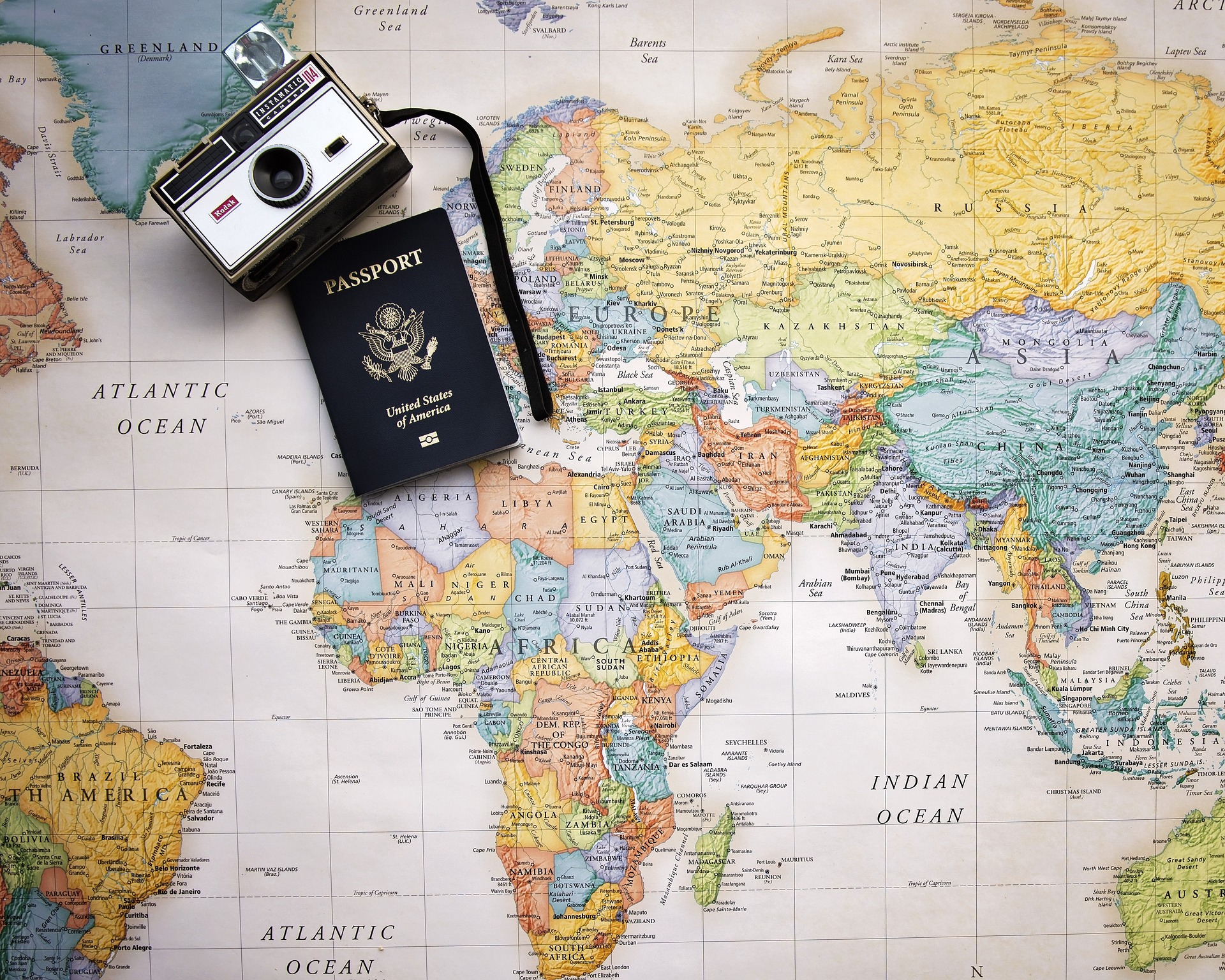Tourism has become an essential part of the global economy and is often seen as an important way to stimulate economic growth in many countries. With millions of people travelling around the world to explore new cultures, experiences, and sights, tourism has a major impact on the lives of people and their communities. In this blog post, we’ll take a look at the top 6 reasons why tourism is important, from its economic impacts to its ability to bring people together and create meaningful connections. So, without further ado, let’s dive into the top 6 reasons why tourism is important and how it can benefit society.
Tourism Boosts the Economy
Tourism is one of the most important contributors to the global economy. It plays a vital role in boosting economic growth, creating jobs and generating income in both developed and developing countries. The tourism industry is estimated to account for 10.4 percent of the global GDP and supports 319 million jobs worldwide.
In many countries, tourism is the primary source of revenue. This is especially true for countries with an abundance of natural attractions and cultural heritage sites, such as Greece, Spain and Mexico. Tourists bring in much-needed money which helps boost their economies, creating jobs and improving infrastructure.
Moreover, tourism also has a direct effect on other industries, from hospitality and transport to retail, manufacturing, food and beverage production and even banking. These industries rely on tourism to stay afloat. For example, when people travel, they often purchase items such as souvenirs, clothing and electronics. In addition, tourists are also likely to stay in hotels, rent cars, hire taxis and eat out in restaurants, all of which boosts these industries’ profits. The benefits of tourism extend far beyond the direct economic effects. With increased tourism comes increased exposure to different cultures and ways of life, which can lead to greater understanding and appreciation among travelers. Additionally, tourism provides governments with the opportunity to attract foreign investment, allowing them to expand infrastructure and other services which can improve the quality of life of citizens in their home countries.
Ultimately, tourism plays a major role in the global economy and its importance should not be underestimated.
Tourism Preserves Culture
Tourism can be an effective tool for preserving culture, both through the protection of historic sites and cultural traditions. By encouraging tourists to explore a destination’s culture, this helps to ensure that culture is sustained and preserved for generations to come. It also enables communities to share their culture with a wider audience, so it can be celebrated and appreciated by people from all over the world. For example, many tourist destinations in Africa offer cultural tours where travelers can experience traditional rituals and customs. This provides an invaluable way for local cultures to be celebrated and shared with the world.
Additionally, tourism has a positive impact on preserving local heritage sites and monuments. Tourists can help to conserve these important historical landmarks by supporting local initiatives such as paying entrance fees or participating in guided tours. In this way, tourism can contribute to the protection of important cultural sites and artifacts, ensuring that they are available for future generations to explore and appreciate.
Furthermore, by increasing visitation to specific areas, governments can allocate more funding towards conservation efforts such as improving infrastructure, providing access to educational materials, and training locals in conservation-based skills. Finally, tourism can provide much needed exposure and awareness to lesser known regions of the world. Through documentaries, social media campaigns, and other promotional activities, lesser known areas can gain recognition which might otherwise not have been possible without tourism. All these benefits show how important tourism is not only for preserving culture, but also for providing economic opportunities and raising awareness about lesser known places around the globe.
It Connects People
Traveling opens up a world of new experiences, perspectives, and relationships. Tourism is an essential part of connecting people from different backgrounds and cultures.It helps bring people together and build understanding. Spending time in another country allows travelers to get a better feel for the people and the culture. This can be especially beneficial in areas that may have had strained relations in the past. Through tourism, people from different parts of the world can come together, learn about each other’s cultures, and even form new relationships and bonds.
Traveling also allows us to connect with those who share similar interests. Whether it’s exploring the history of a particular place or enjoying a certain type of cuisine, we can find like-minded people and create meaningful connections with them. Tourism helps to open up lines of communication and strengthen existing relationships.
People who visit unfamiliar places are often surprised by how much they end up learning while they are there. When travelers return home, they bring back invaluable insights and knowledge from their travels which can help bridge cultural gaps.
Tourism Creates Jobs
A thriving tourist industry can provide jobs for locals and generate much-needed income for host countries. As more and more people take vacations, more jobs are created in the tourism industry, including tour guides, hotel staff, restaurant staff, and transportation workers. These jobs not only provide economic stability to individuals and families, but they also strengthen the economy as a whole. Furthermore, these jobs often have unique benefits such as discounts on travel, flexible hours, and working in an enjoyable environment. Tourism is a great way to diversify local economies, helping them become less dependent on one industry, and providing much-needed employment opportunities for the community.
Tourism can be a powerful tool for poverty alleviation
Tourism has the potential to be a powerful tool for alleviating poverty and reducing inequality in both developed and developing countries. In some areas, it is seen as a key economic activity, with the capacity to generate income and employment. It can provide much-needed economic opportunities for people living in poverty, offering them jobs, increasing their incomes and providing an incentive to stay in their own communities rather than migrating elsewhere in search of work.
In addition, tourism can provide access to basic services such as education and health care, which are often out of reach for those living in poverty. Tourism can bring an influx of foreign capital that can be invested in local infrastructure, helping to improve roads, bridges, schools and other public amenities. This can lead to improvements in the quality of life for local people and can also encourage other investors to invest in the area, further boosting economic growth. Finally, tourism can help stimulate local demand for goods and services that were previously unavailable or too expensive for those living in poverty. This increased purchasing power will allow them to purchase items they need for a better quality of life, from food and clothing to books and educational materials.
Tourism can promote peace
Tourism can play an important role in promoting peace in the world. Tourism provides an opportunity for people from different countries and cultures to learn about each other and gain an appreciation for their differences. Interacting with different cultures is an effective way to bridge divides and promote understanding, respect, and tolerance. Travel can break down stereotypes and help people to recognize the common humanity of people from different backgrounds.
In some cases, tourism can also support conflict resolution efforts. People from both sides of a conflict may be able to see one another as human beings rather than enemies if they meet while travelling. Building these kinds of relationships can help create mutual understanding and respect that can lead to improved relations between countries.
Conclusion
Furthermore, governments should focus on implementing policies and initiatives which will further promote the growth of this sector. Sustainable tourism practices need to be encouraged so that local resources can be used responsibly and so that any negative impacts on the environment can be minimized. Additionally, businesses must ensure they adhere to ethical business practices in order to ensure that they are engaging responsibly with the local community. Moreover, businesses must strive to minimize any potential harm or disruption caused by large groups of tourists visiting sensitive locations. With responsible management and proper regulations in place, tourism can become an integral part of fostering lasting peace and understanding between different cultures.
One of the major benefits of tourism is its ability to generate funds for conservation. When visitors come to an area, they often pay to access protected areas, visit national parks and monuments, or take part in other recreational activities. These fees, along with donations from travelers, can be used to fund conservation efforts in the region. By supporting local wildlife and conservation efforts, tourism helps preserve natural resources, habitats, and species for future generations.



